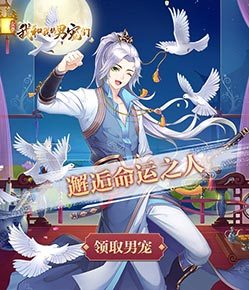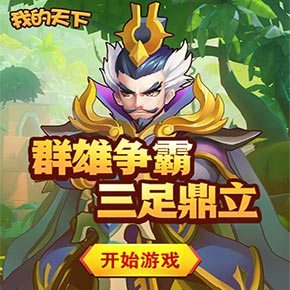Why are Chinese horse-face skirts popular among young people?
The resurgence of horse-face skirts has sparked a new wave of traditional clothing craze. In this trend, the Pearl River Delta's industrial chain plays a crucial supporting role.
One of the most noticeable impacts of its popularity is evident in the sales of Hanfu merchants. According to 2023 Singles' Day sales data from Tmall, over 730,000 horse-face skirts were sold on Taobao, enough to cover 105 football fields.
In the past year, Baidu search index data shows that Guangdong users have the highest proportion of searches for "Hanfu" products nationwide, with Shenzhen and Guangzhou ranking among the top ten cities for "Hanfu" searches.
Industry insiders attribute the rise of horse-face skirts to a serendipitous event. In 2022, Dior released a mid-length skirt priced at 29,000 yuan, featuring overlapping front and back panels and touted as a "brand-new" fashion item adopting the iconic Dior silhouette. Nevertheless, Chinese netizens noticed its striking resemblance to the traditional Chinese garment, sparking widespread discussion online.
The widespread popularity of horse-face skirts can be attributed to their affordability and quality. Unlike the common perception of Hanfu as heavy, expensive, and retro, the horse-face skirts available in the market are lightweight, brightly colored, and priced ranging from tens to hundreds of yuan. This is thanks to the integration of the supply chain and advancements in manufacturing techniques.
Guangzhou is dubbed the "center of the Hanfu industry," and the Pearl River Delta's clothing supply chain has laid the foundation for the expansion of the Hanfu market. According to "Qichacha" data, Guangdong Province is home to 335 Hanfu-related enterprises, with 75 located in Guangzhou.
"Guangzhou boasts not only upstream fabric manufacturing enterprises but also advanced logistics systems and a great number of design and operations professionals, allowing merchants to quickly respond to user demands," said Xie Linglong, one of the founders of the Hanfu brand "Zhizaosi" in Panyu District, Guangzhou.
To reform the supply chain, Xie Linglong and his team developed a jacquard loom that can weave Yunjin, a traditional Chinese luxury silk brocade, significantly lowering the price of horse-face skirts. Operating traditional textile machines, each weaver could only produce 2-3 centimeters of Yunjin per day. However, with the improved jacquard loom, it takes only 4 hoursfrom weavingthe fabric to produce a horse-face skirt featuring an imitation Diancui craft.
In addition to affordability, another important reason for the popularity of horse-face skirts is their ability to be paired with modern clothing for everyday wear. The skirt features both heritage and practicality.
Qin Muzhi, a senior Hanfu enthusiast in Beijing, believes that "in the Hanfu community, Ming-style Hanfu has always been the most popular. Firstly, because the Ming Dynasty is relatively close to contemporary times, there are more clothing relics for reference. Secondly, Ming-style horse-face skirts are 'for daily wearing' and are among the most compatible bottoms with other Hanfu tops."
Behind the craze for horse-face skirts lies cultural confidence and the public's love for and inheritance of traditional culture. Based on clothing, more and more young people delve into traditional crafts such as calligraphy, painting, and paper-cutting to gain cultural and identity recognition, showcasing their unique style and revitalizing traditional culture through new expressions.
Source:Yangcheng Evening News
中国马面裙为何受年轻人欢迎?
马面裙,带起了新一轮的传统服饰热潮。在这股国潮风中,珠三角的产业链起到了重要的支撑作用。
最能直观感受到马面裙“爆红”的,大抵是各大汉服商家。据2023年天猫“双11”销售数据显示,淘宝卖出了超73万条马面裙,能铺满105个足球场。
而近一年的百度指数显示,以“汉服”为关键词搜索商品的用户中,广东用户在国内占比最高,其中深圳、广州入选“汉服”搜索率前十名的城市。
在业内人士看来,马面裙“出圈”源头来自一次意外。2022年,迪奥发布了一款售价2.9万元人民币的中长半身裙,这款裙子前后片交叠剪裁,被称为一款“采用标志性Dior廓形”的“全新”时尚单品。中国网友发现该裙子与中国传统服饰“马面裙”几乎一模一样,引发了网友热议。
马面裙如此之火爆,和它的物美价廉有关。和人们对汉服持有的厚重、昂贵、复古等普遍印象不同,如今市面上流通的马面裙质地轻盈且颜色艳丽,价格从几十元到几百元不等,这得益于产业上下游的打通以及制作工艺的提升。
在被业界称为“汉服产业第一城”的广州,珠三角服装供应链为汉服市场的开拓奠定了基础。“企查查”数据显示,广东省现存335家汉服相关企业,其中75家落地广州。
“广州既聚集了产业链上游的面料制造企业,也拥有更先进的物流系统,以及更多设计、运营人才,使商家可以迅速对用户需求作出反应。”广州番禺的汉服品牌“织造司”创始人之一谢凌龙说。
为了改革供应链,谢凌龙及其团队亲自实践,研发出复原云锦织造工艺的提花机,把马面裙的价格狠狠地“拉”了下来。使用传统纺织机,每位织工每天只能织2-3厘米。而经过改良的提花机,从织布算起,仅需4小时即可做出一条仿点翠工艺的马面裙。
除了价格因素,马面裙流行的一个重要原因是它可以与现代服饰进行日常穿搭,这与马面裙的传承性和实用性密不可分。
北京的资深汉服爱好者秦牧之认为,“在汉服圈,明制汉服一直是最受欢迎的。首先是因为明代距离当代相对接近,有更多文物形制可作参考;其次则因为明制马面裙‘能穿得出去’,属于最能搭配其他汉服上衣的下装之一。”
马面裙火爆背后是文化自信,是大众对于传统文化的热爱和传承。越来越多的年轻人以服饰为起点,学习书法、绘画、剪纸等传统技艺,从中获取文化认同和身份认同,既彰显了自己独特的风格,也让传统文化有了新的表达。
文 | 记者 梁善茵 实习生 黄明圆
图 | 受访者提供(署名除外)
翻译 |刘佳慧





 +61
+61 +86
+86 +886
+886 +852
+852 +853
+853 +64
+64


